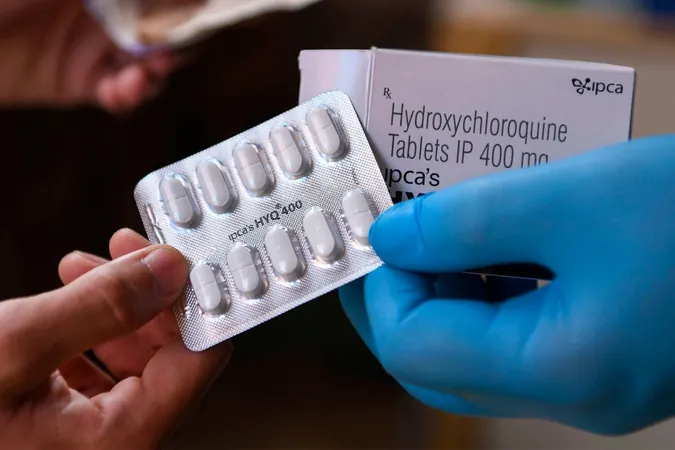
Hydroxychloroquine Study Retraction: A Major Blow to Pandemic Misguided Treatments
2024-12-19
Author: Yan
Hydroxychloroquine Study Retraction: A Major Blow to Pandemic Misguided Treatments
In a significant turn of events, the controversial study claiming hydroxychloroquine could effectively treat COVID-19 has been officially retracted, a decision that comes after years of skepticism and criticism from the scientific community. This week, Elsevier, the publishing house of the International Journal of Antimicrobial Agents, announced the retraction, underscoring serious concerns about the study’s methodology and ethical standards.
The retracted research, published in March 2020, initially sparked tremendous interest in hydroxychloroquine (HCQ) as a potential treatment for COVID-19. The study suggested that patients treated with HCQ had lower viral loads and recovered more quickly, particularly when combined with the antibiotic azithromycin. This so-called “game changer” was even championed by then-President Donald Trump, leading to a surge in government-funded clinical trials and widespread off-label usage.
However, this initial enthusiasm quickly faded as numerous experts criticized the study's design and results. Questions about the recruitment and consent of patients involved in the study soon arose, revealing ethical concerns that undermined the findings. An investigation revealed that many participants may have been enrolled without proper approval, and that the administration of azithromycin may not have adhered to ethical standards. Alarmingly, several co-authors expressed doubts about the integrity of the conclusions, with three ultimately requesting to dissociate from the paper.
The repercussions of this misguided research extend beyond academic debates. Many COVID-19 patients were treated with HCQ based on the study's misleading results, despite subsequent evidence indicating that the drug offered no real benefit and might even increase the risk of adverse effects, such as heart complications. The World Health Organization and the U.S. FDA eventually recommended against the use of HCQ for COVID-19, yet the drug’s fervent advocates, including some political figures, continued to promote it against scientific consensus.
Beyond affecting treatment protocols, the study's legacy potentially deterred patients from seeking evidence-based care. The ongoing discussions around HCQ have contributed to a climate of misinformation surrounding COVID-19 treatments, emphasizing the need for a vigilant and evidence-driven approach to public health.
In the wake of the retraction and further investigation, it is clear that the real “game changer” in the battle against COVID-19 is rigorous scientific scrutiny and the willingness to adapt public health responses based on reliable data. As the world looks to move past the pandemic, the focus must remain on science over sensationalism to ensure patient safety and effective treatment strategies.





 Brasil (PT)
Brasil (PT)
 Canada (EN)
Canada (EN)
 Chile (ES)
Chile (ES)
 España (ES)
España (ES)
 France (FR)
France (FR)
 Hong Kong (EN)
Hong Kong (EN)
 Italia (IT)
Italia (IT)
 日本 (JA)
日本 (JA)
 Magyarország (HU)
Magyarország (HU)
 Norge (NO)
Norge (NO)
 Polska (PL)
Polska (PL)
 Schweiz (DE)
Schweiz (DE)
 Singapore (EN)
Singapore (EN)
 Sverige (SV)
Sverige (SV)
 Suomi (FI)
Suomi (FI)
 Türkiye (TR)
Türkiye (TR)